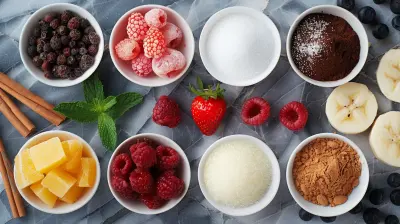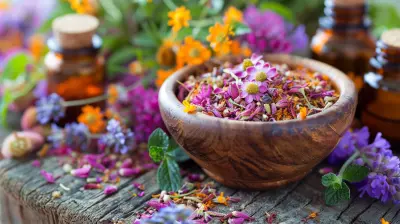Eating for Longevity: Foods That May Help You Live Longer
17 April 2025
Let’s face it—none of us can stop the clock. But what if you could slow it down just a bit? What if the secret to squeezing a few more candles on your birthday cake wasn’t locked in a lab, but sitting right on your dinner plate? Yup, we're talking about eating for longevity. The food you eat has a direct impact on how long and how well you live. It's not a magic pill, but honestly, it's pretty close.
So, grab a cup of green tea (you'll see why later), and let’s dig into the world of longevity-boosting foods that not only add years to your life—but life to your years.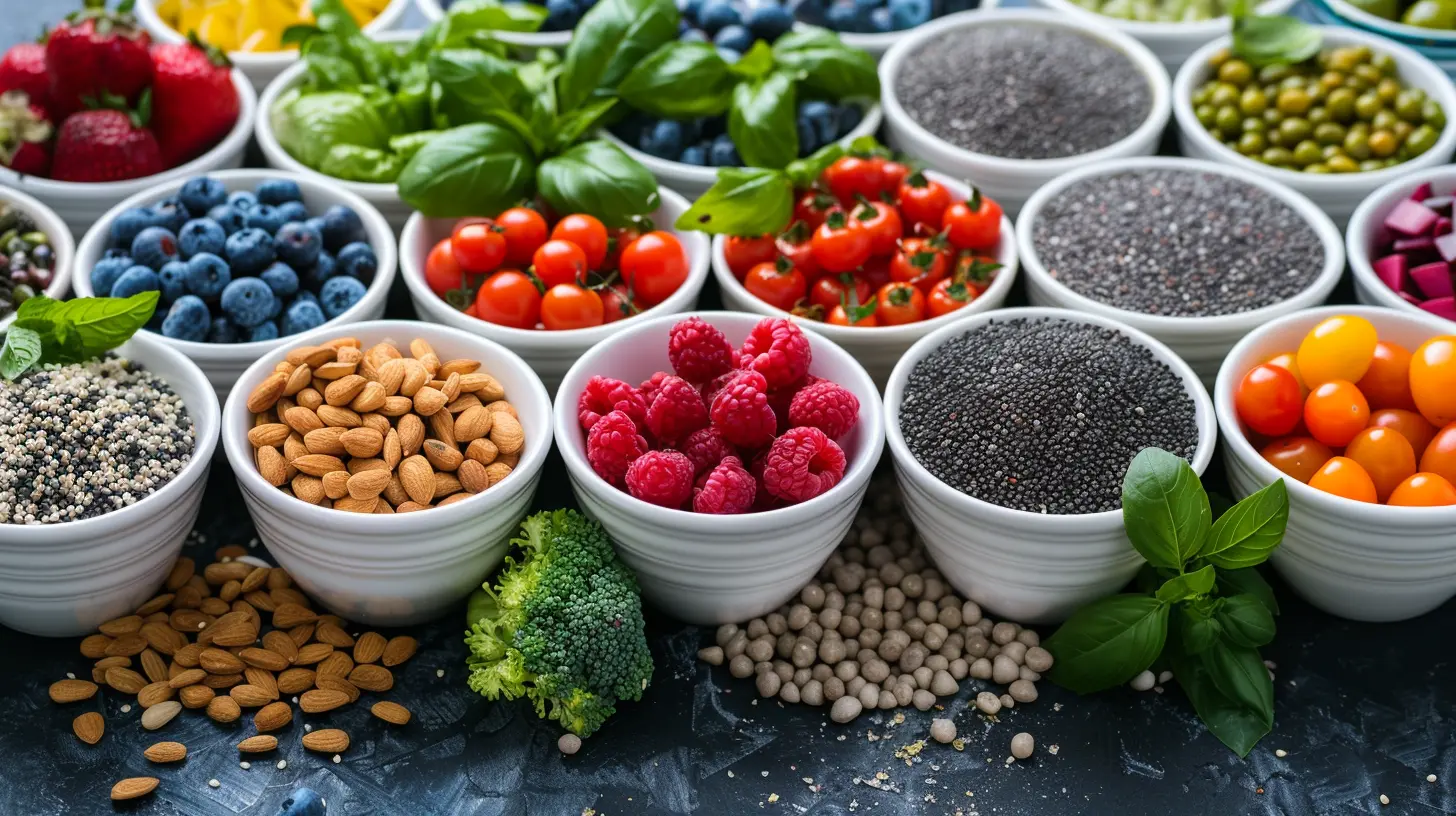
Why Food Matters for Longevity
Think of your body as a car. You wouldn’t pump low-grade fuel into a Ferrari and expect it to roar. Same goes for your body. The better the fuel (a.k.a. food), the better your body runs. Scientific studies are stacking up that show nutrition plays a huge role in aging, not just physically but mentally too.We’re not just talking about avoiding diseases like heart disease, cancer, or diabetes—though that’s a big part of it. Food also affects your cells, your brain, and even your mood. So if you're hoping to blow out 90 candles on your birthday cake with a strong mind and a steady hand, your grocery list might need a makeover.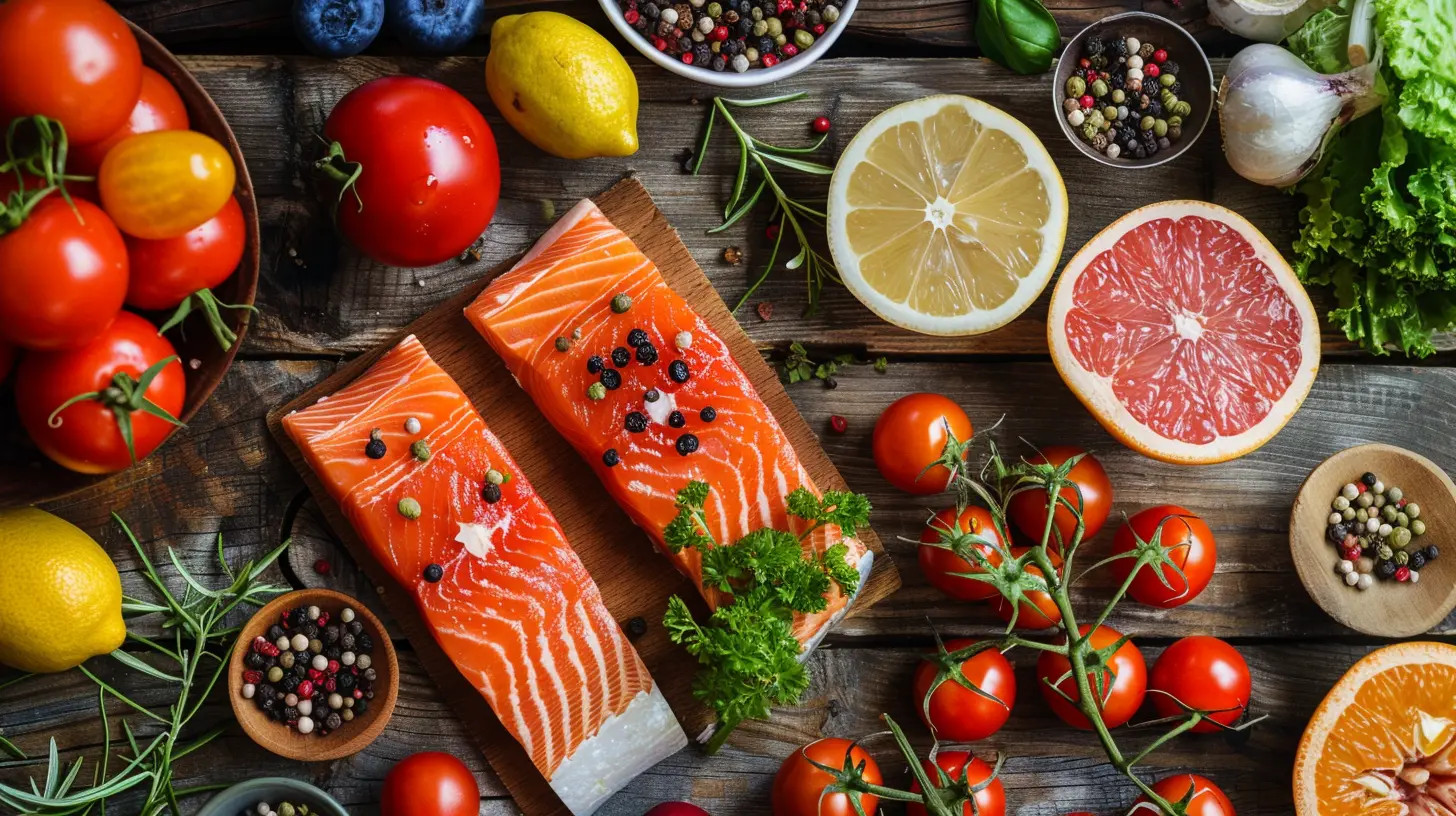
1. Leafy Greens: Salad Isn't Just for Rabbits
Let’s kick things off with the humble green leaf. Spinach, kale, arugula, collard greens... they may not sound glamorous, but their benefits are solid. Rich in folate, antioxidants, and fiber, leafy greens combat inflammation and oxidative stress—two big-time villains behind aging.Studies have shown that people who eat more greens have a slower cognitive decline. In plain English? Your brain stays sharper. Plus, fiber in greens helps with digestion, lowers cholesterol, and even helps regulate blood sugar.
Pro Tip: Pack your plate with at least one serving of greens daily. Toss a handful into your morning smoothie or sneak it into soups and stir-fries.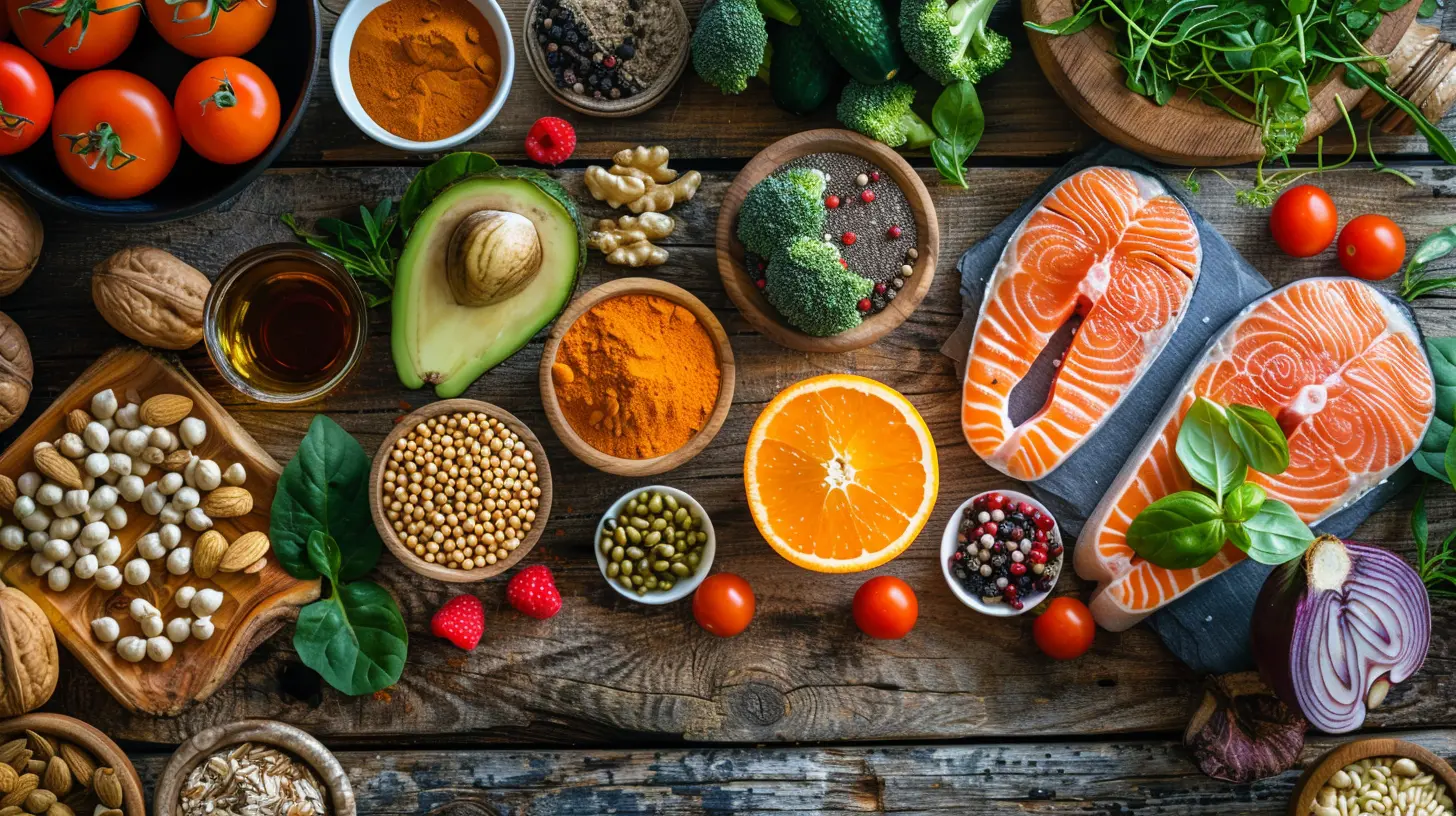
2. Berries: Little Jewels of Longevity
Sweet, tart, and oh-so-poppable—berries like blueberries, strawberries, and raspberries are tiny but mighty when it comes to health benefits. They’re loaded with anthocyanins, which are antioxidants that help protect your cells from damage.Berries are also anti-inflammatory and can help improve heart health and memory. Think of them as nature’s brain supplements, but way tastier.
Snack Swap: Ditch the candy and grab a bowl of mixed berries. Your taste buds and your brain will thank you.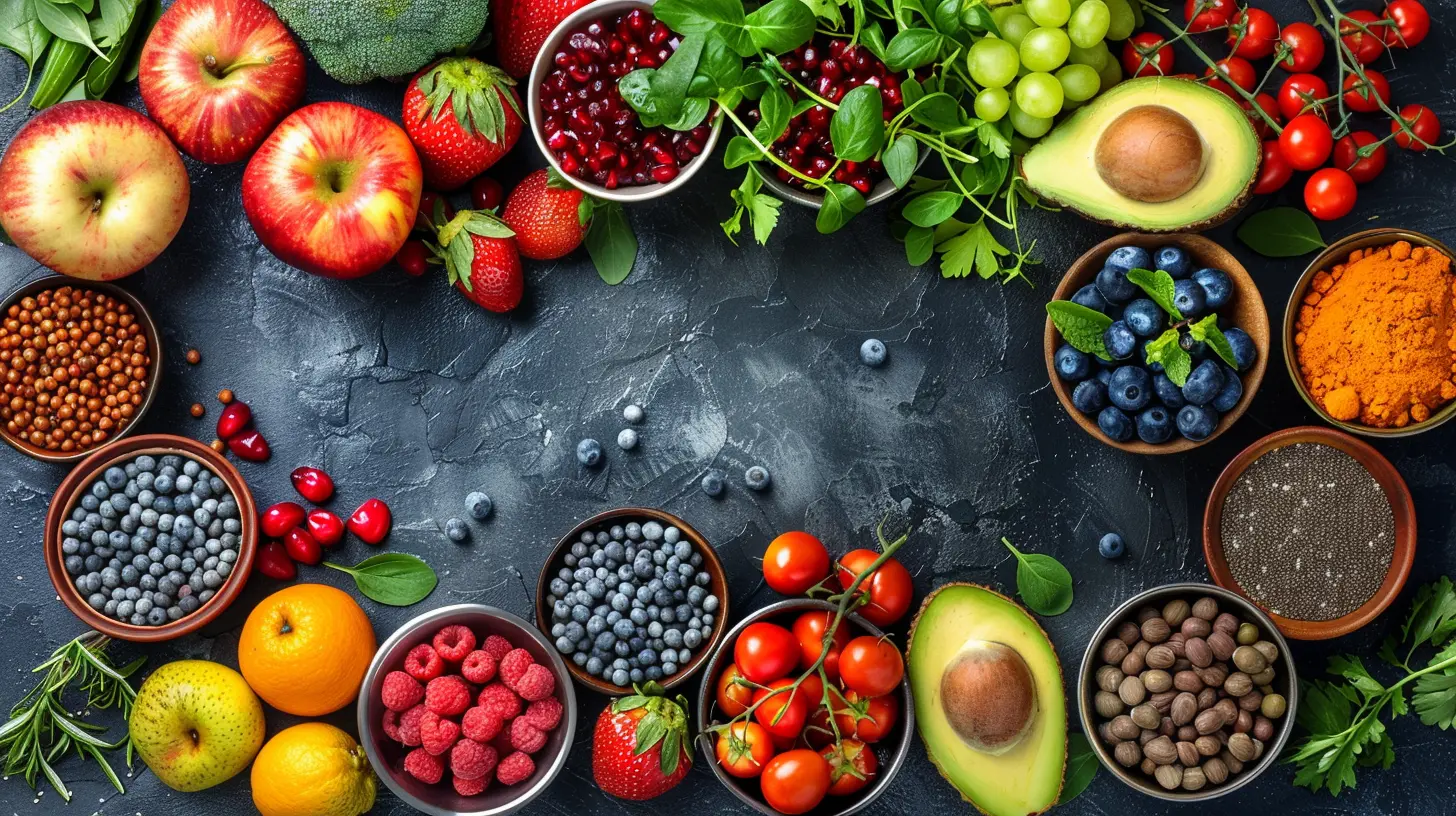
3. Fatty Fish: Omega-3s for the Win
Salmon, sardines, mackerel—these aren’t just for sushi lovers or fancy brunches. Fatty fish are rich in omega-3 fatty acids, which have been linked to lower risk of heart disease, improved brain function, and reduced inflammation.Your body can’t produce omega-3s on its own, which is why foods like fatty fish are essential. They're also packed with vitamin D, a crucial nutrient many of us are quietly running low on.
Aim for: Two servings of fatty fish per week. Not a fan of fish? Consider algae oil or flaxseeds as plant-based alternatives.
4. Nuts and Seeds: Tiny Titans of Nutrition
These crunchy little guys are more than just snacks—they’re longevity gold. Almonds, walnuts, chia seeds, flaxseeds, and sesame seeds are all rich in healthy fats, fiber, and antioxidants.Studies have found that people who eat a handful of nuts regularly (we’re talking five days a week) live longer. Yup, longer. Nuts help reduce cholesterol, improve heart health, and even support mental clarity.
Heads Up: While they’re calorie-dense, nuts are also nutrient-dense. Just don’t go overboard—a small handful goes a long way.
5. Legumes: Beans, Beans, They’re Good for Your... Life
Beans, lentils, chickpeas, peas—legumes are a powerhouse combo of protein, fiber, complex carbs, and antioxidants. They’ve been a dietary staple in many "Blue Zones"—areas of the world with the highest number of centenarians.Eating legumes regularly can help control blood sugar, reduce bad cholesterol, and even help with weight management. And guess what? People who eat more legumes tend to live longer. Coincidence? We think not.
Easy Fix: Add lentils to your soup, toss chickpeas into your salad, or swap meat for black beans in tacos.
6. Whole Grains: Ditch the White Stuff
White bread and sugary cereals might taste good, but they aren’t doing your body any longevity favors. Whole grains like oats, brown rice, quinoa, and barley are packed with fiber, vitamins, and minerals.They help keep your digestive system humming, your blood sugar stable, and your heart in check. And unlike refined grains, they don’t spike your insulin or leave you hungry an hour later.
Fuel Up: Start your day with oatmeal or swap out white rice for quinoa at dinner. Your gut will give you a standing ovation.
7. Colorful Veggies: Eat the Rainbow
The more color on your plate, the better. Brightly colored veggies like red bell peppers, carrots, beets, and purple cabbage are packed with phytochemicals—natural compounds that can reduce inflammation, fight off free radicals, and protect your cells.Each color brings its own set of benefits. Orange and yellow veggies are loaded with carotenoids for eye health. Red ones have lycopene for heart health. Purple ones have anthocyanins for brain health.
Quick Tip: Try to get at least 3–4 different colors of veggies on your plate each day. It’s like nutritional paint-by-numbers!
8. Fermented Foods: Gut Health is Key
Your gut is like your body’s command center. If it’s off, everything’s off—immunity, mood, digestion, even skin health. That’s where fermented foods come in. Think yogurt, kefir, sauerkraut, kimchi, miso, and kombucha.These foods are loaded with probiotics, the good bacteria your gut loves. A healthy gut microbiome can reduce inflammation, boost immunity, and even help regulate weight—all contributors to a long, vibrant life.
Gut Check: Mix a spoon of sauerkraut into your salad or sip on a glass of kefir as a snack. Small changes, big impact.
9. Green Tea: Sip Your Way to More Birthdays
Green tea isn’t just a trendy drink—it’s been a staple in several long-living cultures for centuries. Packed with polyphenols and antioxidants, green tea helps fight inflammation, boost metabolism, and even protect against certain diseases like Alzheimer’s and some cancers.It’s also been linked to lower rates of heart disease and stroke. Bonus: it gives you a mental boost without the jitters of coffee.
Tea Time: Swap your second coffee for a cup of green tea in the afternoon. Your brain and heart will both thank you.
10. Olive Oil: Liquid Gold
The Mediterranean diet gets so much love, and olive oil is a big reason why. Rich in monounsaturated fats and antioxidants, olive oil is great for heart health and reducing chronic inflammation.It also has compounds that protect the brain and may help prevent cognitive decline. Think of it as both your heart’s and your brain’s best friend.
Pro Move: Use extra virgin olive oil as your go-to cooking oil or drizzle it over veggies and salads.
Foods to Limit (Yeah, We Had to Go There)
While adding good stuff to your diet is key, knowing what to cut back on is also crucial if you’re trying to live longer. It’s not about perfection, but moderation.- Processed meats (like bacon and sausage): Linked to higher cancer risk.
- Excess sugar: High sugar intake is tied to obesity, diabetes, and accelerated aging.
- Refined carbs: White bread, pasta, and many baked goods trigger inflammation and swings in blood sugar.
- Too much alcohol: A glass of red wine? Cool. A bottle every night? Not so much.
- Trans fats: Found in some margarine and baked goods—just say no.
Build Your Longevity Plate: A Quick Recap
Here’s a simple formula to remember:- Half your plate: colorful veggies and leafy greens
- One-quarter: whole grains or legumes
- One-quarter: lean protein (plant-based or fatty fish)
- Healthy fats: nuts, seeds, olive oil
- Bonus: berries for dessert and green tea to sip
Final Thoughts: Eat to Thrive, Not Just Survive
Listen, there’s no one-size-fits-all superfood that’ll make you live forever. If there were, it’d probably be sold out on Amazon already. But what you put on your plate daily adds up—bite by bite, meal by meal. It’s about creating habits that stack up over time.Let your food work for you. Choose whole, colorful, nutrient-rich options that fuel your mind and body. Long life isn’t just about the number of years—it’s about the quality of those years. Eat smart, live fully, and never underestimate the power of what’s on your fork.
all images in this post were generated using AI tools
Category:
NutritionAuthor:

Eileen Wood
Discussion
rate this article
4 comments
Maxwell Reese
This article offers valuable insights on nutrition for longevity. Thank you for sharing these informative and practical tips!
April 30, 2025 at 4:36 PM

Eileen Wood
Thank you for your kind words! I'm glad you found the tips helpful for promoting longevity.
Wade Miller
Great article! It’s amazing how the right foods can boost our longevity. Remember, every healthy bite is a step closer to a vibrant, longer life! Let’s savor those colorful fruits and veggies and embrace the journey to wellness together!
April 22, 2025 at 3:08 PM

Eileen Wood
Thank you! I completely agree—every healthy choice truly counts in our journey to wellness!
Zander McGuire
Great insights! Focusing on nutrient-dense foods and incorporating a variety of plants can truly enhance longevity. Excited to try some of these recommendations for a healthier life!
April 21, 2025 at 4:25 PM

Eileen Wood
Thank you! I'm glad you found the insights helpful. Enjoy exploring those nutrient-dense foods for a longer, healthier life!
Spencer James
Who knew eating for longevity could be so delicious? Dive into a world of vibrant veggies and hearty grains—because living longer should be a tasty adventure! Let’s munch our way to many more birthdays!
April 18, 2025 at 4:41 PM

Eileen Wood
Absolutely! Delicious, nutritious food can make healthy living a joyful journey. Cheers to tasty adventures and many more birthdays!


